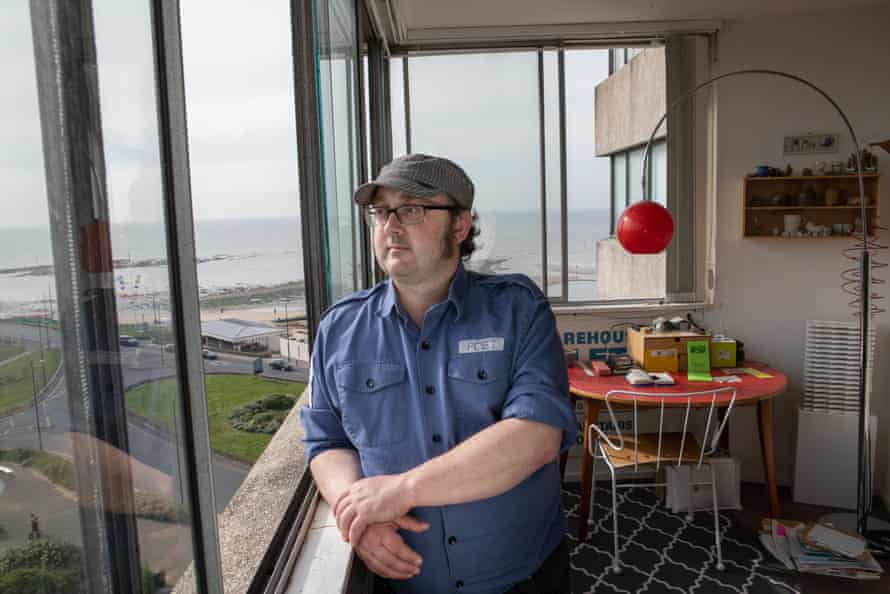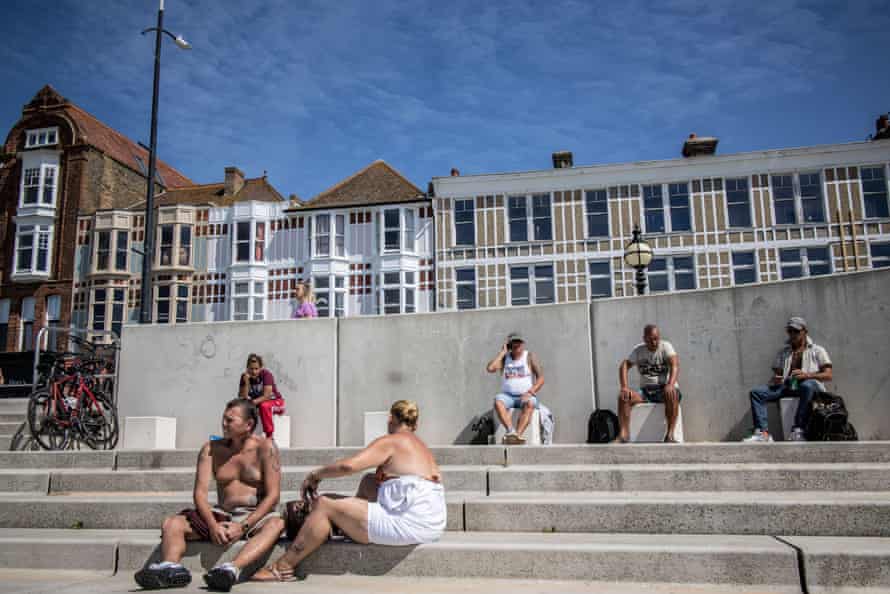
The lockdown shackles are off. The great half-term getaway began with predictable traffic chaos on Friday night as Britons finally got the chance to escape to the seaside.
But some people living in the resorts are being forced to head in the opposite direction along the clogged-up roads, priced out of their homes by a coastal housing crisis that has been turbocharged by the pandemic.
Landlords in popular seaside destinations are favouring holidaymakers over long-term tenants, leading to a catastrophic shortage of homes. Cornwall currently has more than 10,290 active Airbnb listings. Yet, in comparison, the housing website Rightmove had only 62 properties available to rent across the whole county on Friday evening. Renters in seaside towns are facing unprecedented competition, with some landlords in Cornwall, Kent and Norfolk given the choice between up to 80 prospective tenants chasing a dwindling number of properties.
People who kept their jobs and accumulated some of the estimated £192bn that Britons have saved since March 2020 have been spending it on second homes. Others have moved away from cities, taking advantage of the stamp duty holiday to find a place large enough to make working from home a comfortable option.
Airbnbs are also booming, with the number of active listings on the website up by 43% in Great Yarmouth, 34% in Scarborough and 40% in Bridlington in April compared with the same time last year, according to AirDNA.
Louise, a 42-year-old deputy headteacher, moved from Leicester to Newquay in Cornwall with her husband, a delivery driver, and two daughters in December to take up a job at a primary school. “We started looking in September last year,” she said. “
We sold two properties – I had one and my partner had his. We’ve got a decent deposit, but there was nowhere to buy and nowhere to rent. Estate agents told us that hundreds of people were fighting for the same properties.”

They settled for an off-season Airbnb at a cost of £1,300 a month – just about manageable on her salary of more than £40,000. “I was sure we’d find somewhere but it hasn’t happened. We had to be out last week because the owner would double her money in holiday season.”
On Saturday, Louise and her family packed up and drove back to Leicester to stay with her parents over half-term, with nowhere to live when they return.
The crisis has forced even those who would normally be considered comfortably off to resort to food banks to feed their families. DISC Newquay, a charity for homeless people, was handing out 60 meals on a Monday evening before the pandemic. That has risen to 4,000, according to its manager, Monique Collins. “I think there are over 500 people in the Newquay area who don’t have a home,” Collins said. “I’ve got a pregnant woman who is sofa-surfing. A hospital porter and his wife. I’ve had a girl text me today saying she has to leave by the weekend. People are being turned out because their landlord wants to turn the property into an Airbnb.
“There are no homes. If they don’t stop this second-home ownership, it’s going to turn Newquay into a ghost town.”

Cornwall’s reputation and climate have made it a favoured location for second homes for many years, but Collins said lockdown had turned the situation into a crisis.
House prices have risen by 15% across the county since April last year, but the buying frenzy has seen extraordinary situations – a bungalow sold for £315,000 five minutes after it was listed, according to local reports.
That mirrors a nationwide trend. Rob Love, co-founder of Crowdfunder, which is based in Cornwall, said they had seen nine times as many food bank projects registering for help between 2019 and the pandemic hitting in 2020.
He said: “Cornwall has been badly hit, but food bank use is rising everywhere. It’s a terrible indictment on the UK in 2021 that so many people are struggling to put food on their tables.”
In north Norfolk, Theo Wakeman said he had only been able to view three flats since he started hunting in the Cromer area a year ago. “The estate agents will say, ‘We’ll take your number but we’ve had 80 other applicants’. It’s never less than 20. It’s horrible. I feel trapped.”
The Norfolk coastline from Blakeney to Burnham is known as Chelsea-on-Sea to locals. “The village shop shut down, and now it’s reopened as a hat shop,” Wakeman said. “You can’t buy a loaf of bread, but you can buy a hat.”
Kent’s seaside towns are showing similar scarcity for renters, according to Rightmove. Margate (population: 61,000) and Whitstable ( 32,000) both had 11 properties to rent, and Herne Bay (39,000) had six. Inland, Canterbury (135,000) had 893.
Dan Thompson has lived in Margate in Kent for nine years after being priced out of Worthing in Sussex, but the 47-year-old artist and writer says he is being forced out again.
“I don’t want to go but there’s nowhere to rent here,” he said. “My landlord is selling and there is literally nothing to rent here. I just don’t have a choice.”


